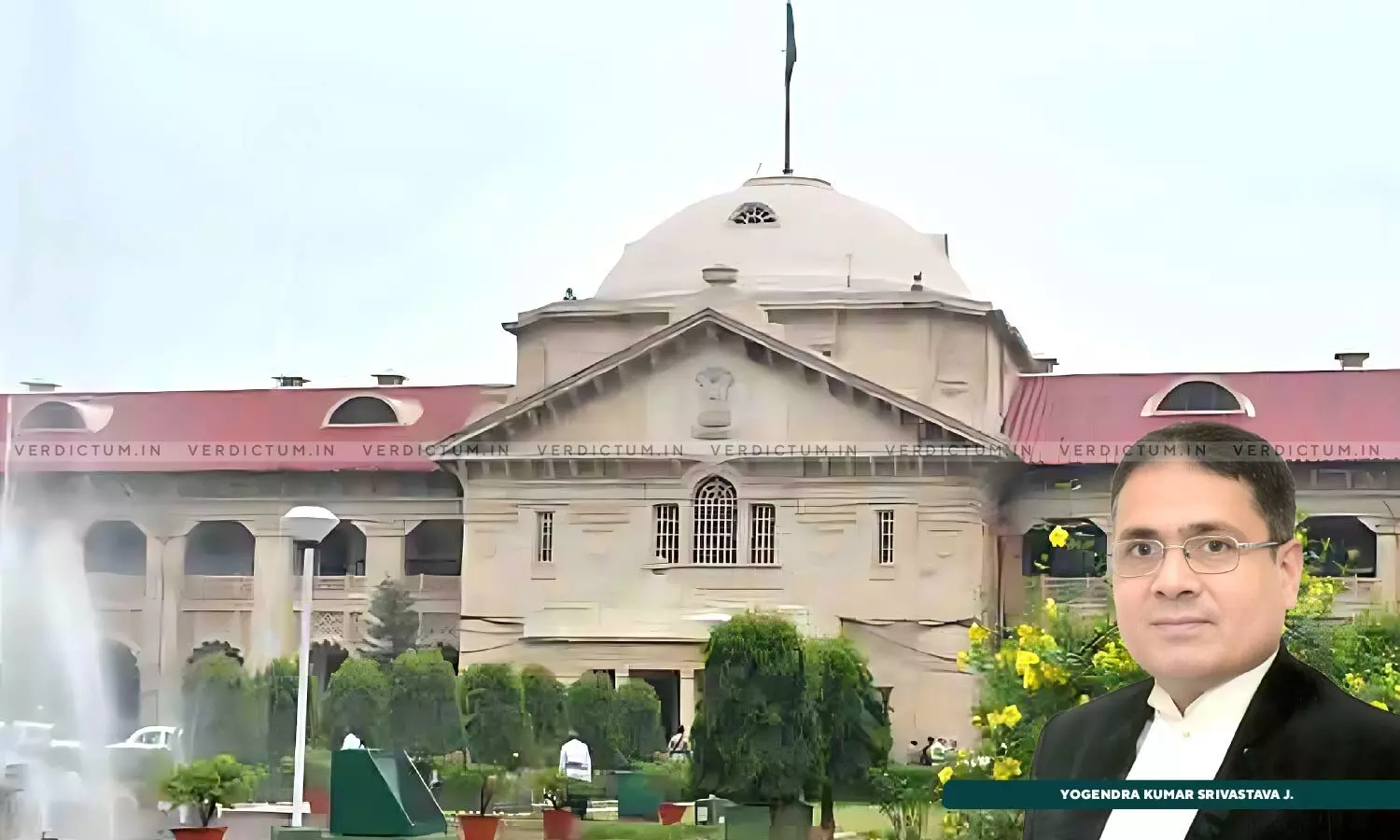
After Mother's Death, Custody Of Muslim Girl Child Who Has Not Attained Puberty Belongs To Mother's Mother: Allahabad HC
 |
|The Allahabad High Court dismissed a writ petition filed by a father holding that after mother's death, the custody of a muslim girl child who has not attained puberty belongs to the mother’s mother.
The Bench dismissed a writ petition filed by the father of a minor daughter seeking her release from the ‘illegal’ custody of her maternal grandmother.
Referring to Sections 352 and 353 under Part-B of Chapter XVIII of Mulla Principles of Mahomedan Law, the Court pointed out that it was “clearly indicative that it is the mother who would be entitled to the custody (hizanat) of a male child until he has completed the age of seven years and of her female child until she has attained puberty, and failing the mother, the custody of a boy under the age of seven years and of a girl who has not attained puberty, would belong to the female relatives in a specified order under which the mother's mother is shown first.”
A Single Bench of Justice Yogendra Kumar Srivastava also observed, “In doing so, the paramount consideration would undoubtedly be the welfare of the child and the role of the High Court in examining such cases would have to be on the touchstone of principles of parens patriae jurisdiction…Habeas corpus proceedings would not ordinarily lie to justify or examine the legality of the custody of the minor child, and the question in this regard would have to be addressed by the Court in exercise of its discretionary jurisdiction. The prerogative writ of habeas corpus, is in the nature of an extraordinary remedy, and is to be issued taking into consideration, the circumstances of a particular case.”
Advocate Yash Raj Verma represented the petitioners, while AGA Pankaj Saxena appeared for the respondents.
The petitioner, claiming to be the father of the minor girl, asserted that the child, aged about seven months, was being unlawfully held by the respondents. The petition contended that the child was handed over to her maternal grandparents following the demise of her mother. However, upon seeking her return, the grandparents allegedly refused, leading to the filing of the petition.
Outlining that the welfare of the child was of paramount importance in determining custody matters, the Court stated that Section 17 of the Guardians and Wards Act, 1890 imposed a duty upon the Court in appointing a guardian to make the appointment consistently with the law to which the minor was subject.
Referring to Sections 352 and 353 under Part-B of Chapter XVIII of Mulla Principles of Mahomedan Law, the Court pointed out that it was “clearly indicative that it is the mother who would be entitled to the custody (hizanat) of a male child until he has completed the age of seven years and of her female child until she has attained puberty, and failing the mother, the custody of a boy under the age of seven years and of a girl who has not attained puberty, would belong to the female relatives in a specified order under which the mother's mother is shown first.”
“Thus, the provisions of the personal law are to be applied consistently with the provisions of the GWA, and insofar as the question of custody is concerned, the rights of parties in the present case, are to be governed by the personal law,” the Court stated.
The Court explained that the remedy in child custody matters was ordinarily under the statutory or personal laws, as the case may be. “Only in cases which justify the exercise of the extraordinary discretionary jurisdiction under Article 226, a writ of habeas corpus would be issued where it is demonstrated that the detention of minor child, is illegal or without any authority of law,” the Court added.
“The custody of petitioner (a minor girl child), with her maternal grandmother, after her mother’s death, would prima facie not be illegal in view of the provisions of the GWA and the applicable personal law,” the Court held.
Consequently, the Bench found that the writ of habeas corpus was not entertainable as there was no case of illegal custody.
Accordingly, the High Court dismissed the petition.
Cause Title: Javeriya Fatma & Anr. v. State of UP & Ors. (Neutral Citation: 2024:AHC:76418)
Appearance:
Petitioners: Advocates Yash Raj Verma and Farhan Alam
Respondents: AGA Pankaj Saxena